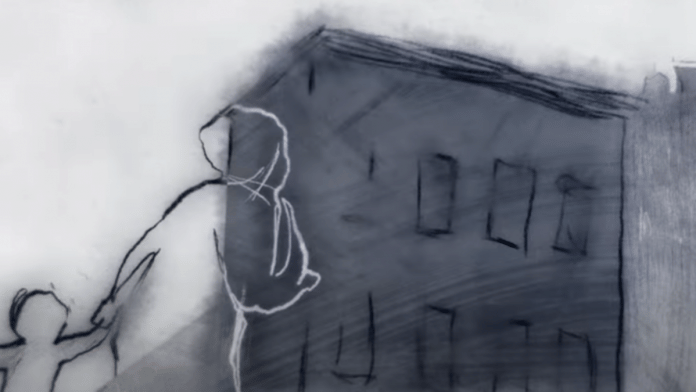What happens when you are forced to abandon not just the comfort of your home but also the warm familiarity of your people? How does it feel when change isn’t a choice but a compulsion?
The questions are pressing, and the answers far from simple, but Danish filmmaker Jonas Poher Rasmussen attempts to address them through his 2021 Oscar-nominated documentary Flee, an animated rendition of a refugee’s journey, now streaming on Zee5.
When an inquisitive Rasmussen asks a broken Amin Nawabi, an Afghan refugee in Flee, what home means to him, the latter gives a haunting response: “Home? It is someplace safe. Somewhere you know you can stay, and you don’t have to move on. It is not someplace temporary.”
Also Read: The Taliban hate films. Why you need to watch these four Afghan-made movies now
Re-telling of tumultuous past
Amin Nawabi’s story isn’t new. It is that of countless refugees who have been forced to escape violent, and often fatal, persecution inflicted on them in their homelands. Through Nawabi, Jonas Rasmussen paints a picture of the 1980s’ Afghanistan — on the verge of conflict but enjoying its last moments of freedom under the erstwhile Soviet regime. Amin was a happy five-year-old then, hooked to his Walkman and free to express his fluid gender identity in his sister’s flowy nightgown.
Rasmussen and cinematographer Mauricio Gonzalez-Aranda make excellent use of animation and archival footage to tell the story of a country that only seems to regress with time. One sees Afghanistan buzzing with liberated women in sky-high heels, beardless men with books in tow and cigarettes in hand, and markets with food aplenty. But unfortunately, that joy is cut short when the Taliban make inroads into Kabul and a weak Afghan government starts to mass conscript teenage boys—an instance that kickstarts Amin’s turbulent journey as a child refugee.
At this point, we see Rasmussen point toward the glaring gap between the First and the Third World and the horrors of escaping a warzone as a refugee. We see Amin and his family slapped with even more challenging times when they grab the last of their belongings to flee to Moscow where they are unwelcome and their freedom is widely curtailed. As subtle as he is, Rasmussen doesn’t flinch while delving into the disturbing details of human trafficking, corruption and sexual violence against displaced citizens from developing nations. One is moved to tears when they see Amin’s sisters trafficked like animals in freight containers.
Also Read: Pashto films inspired Bollywood once. But Zia, 9/11, Taliban all led to their decline
Far from superficial
If you think that animation underplays the soul of a film, think again, because Flee will make you feel a thousand emotions in its short run time of 1.5 hours. Voiced by Hollywood stars Riz Ahmed and Nikolaj Coster-Waldau, this docu-drama is a far cry from the dated selection of documentaries available online, for it safeguards its protagonist’s identity while providing newer insights into the art of documentary filmmaking. Interestingly, the core animation team of this film comprised 10 Danish animators and clean-up specialists and a highly-skilled colouring team from France—precisely why each scene seems like a painting from a veteran artist’s playbook.
As the film progresses, Rasmussen covers the themes of love, sexuality and family amid conflict. Sequences from the past and the present are woven together to provide inroads into Amin’s scuffle with sexuality and gender identity. We see him struggle in settling down with his partner, for his past troubles keep knocking at his door. Besides, he also has a tough time confessing his homosexual inclinations before his traditional Muslim family. Where most documentaries approach their subjects in a perfunctory manner, Rasmussen sets an example through perfect scene-setting and seamless transitions. Add to this Uno Helmersson’s poignant score, and you have a carefully crafted and deeply impactful full-length feature film. That could be why Flee not only received three nominations at the Oscars but also several honours and mentions at the Sundance film festival and Annie Awards, to name a few.
(Edited by Humra Laeeq)






